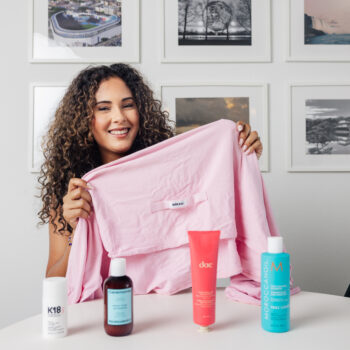Story by Isabelia Herrera
Photography by Itzel Alejandra Martinez
Make up by Marisol Solis
Melii stands on stage, microphone in hand as she struts across the floor in a royal blue racing crop top and thigh-high boots. DJ Enuff, the Hot 97 personality whom the Harlem-born rapper affectionately refers to as her uncle, is posted up next to her. He’s ready to introduce this newcomer to a crowd of thousands, who are gathered at Brooklyn’s Barclays Center for Soulfrito, the city’s annual hip-hop and reggaeton festival.
Before long, Melii bursts into her hit “Icey,” the ultra-Dominican hook of “Tú me tiene’ dema/Cuida’o si me toca te quema” ringing out over that indelible, blown-out speaker beat.
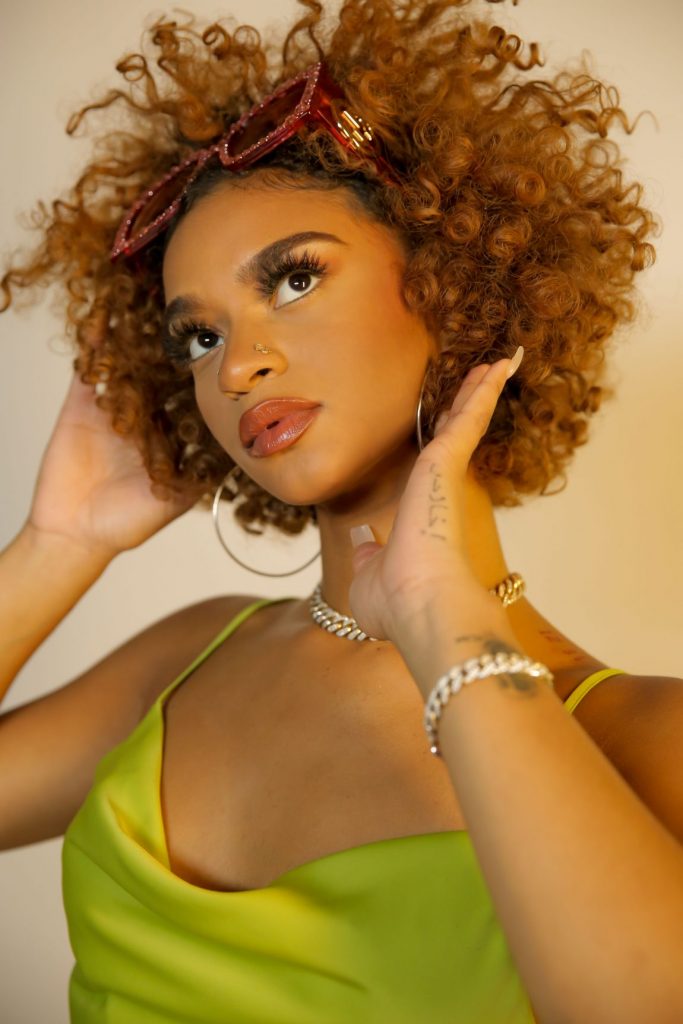
The first time I heard that hook, I had to run it back to make sure I heard it right. No one ever gets to rap in Dominican Spanish in mainstream hip-hop, much less on a song that’s mostly in English. It felt real, like the dembow I grew up listening to with my cousins – there wasn’t a forced “mamacita” or “hot tamale” in sight. Someone had finally gotten it right, finally illustrated what it means to live between flows and languages. And above all, it slapped.
The self-described “jiggy shorty with the curls” later told me she was shaking from the nerves during the performance, which was her New York debut. But I honestly couldn’t tell, as I watched her toss her head from side to side, her spiraling locks swinging back and forth with each spin. And though I was seated a couple hundred feet away, each hard-edged rhyme hit like a stinging upper cut to the chest; I imagined her spitting all over the mic.
That was one year ago, and it’s hard to believe that it was Melii’s first hometown performance. Since then, the dominicana has collected a treasure trove of accolades most young rappers only dream of: a tour with Meek Mill, a collaboration with A Boogie Wit Da Hoodie, a deal with Tory Lanez’s One Umbrella imprint, and even a debut album.
Melii’s come up feels like it hails from a bygone era of rap, one where memes and labels are no longer the impetus behind a potential hit. Melii did it the typical way: playground rap battles, childhood struggles, a management deal gone wrong, and eventually a cavalcade of high-profile co-signs (including a Rihanna shoutout during a Fenty product review). And for someone who comes from the sacrosanct traditions of Harlem rap, she’s bringing something new to the table, all while honoring the neighborhood’s legacy of piercing, self-mythologizing raps.
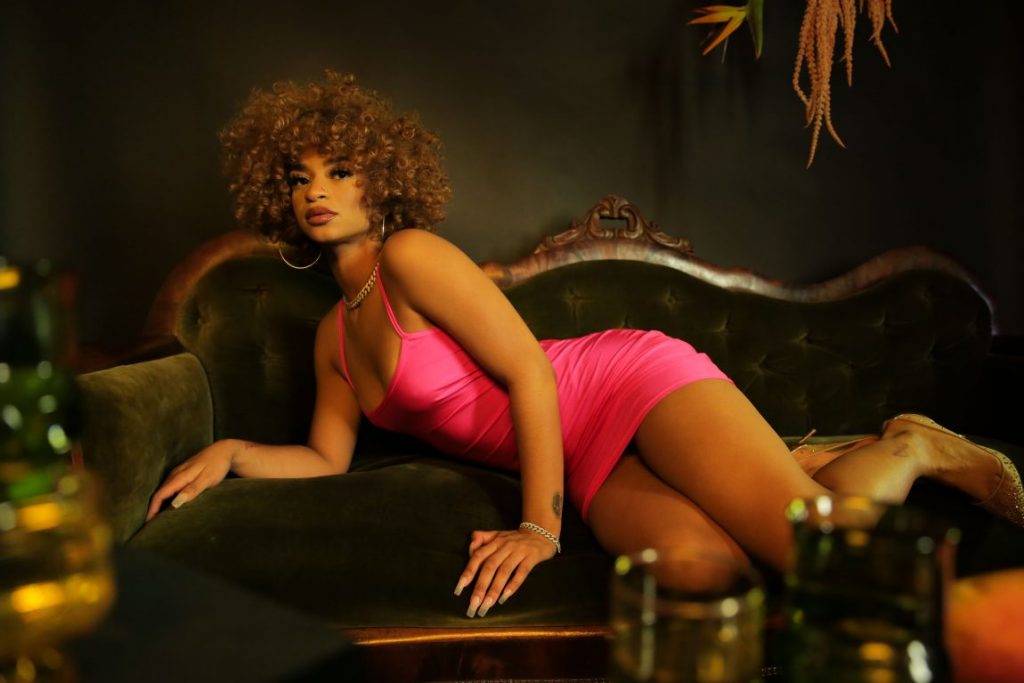
Growing up in Harlem’s Lincoln Houses, Melii and the other kids from the projects spent their days rapping in class at Thurgood Marshall Academy. Melii remembers it started in sixth grade; they were inspired by another New York hip-hop behemoth – Nicki Minaj. “I was in an all-girls class, so when my teacher would be gone, we’d all sit in groups and just start rapping. My nickname was Chuchi,” she snickers in between bites of a cracker at Remezcla’s headquarters in Brooklyn. “Anytime we would get together in the school, it was like a big family.”
It began with bubblegum rhymes and goofy stage names, but when Melii entered high school, hip-hop became an indispensable escape. “Once I started getting into real life issues, I depended on the music to express myself,” she says. Melii’s mother and father were strict, and like many immigrant parents, didn’t often nurture her creative impulses. “Growing up in a very strict home, and having strict parents, I never had the way to really express myself,” she says. The 22-year-old Dominican rapper relied on poetry and journaling as an avenue for introspection. “I always used to keep journals. I always used to read mystery books and poetry, so I started turning my own writings into poetry. It did help me a lot with writing and rapping and singing, because I had a way to perfectly just patch everything into a story.”
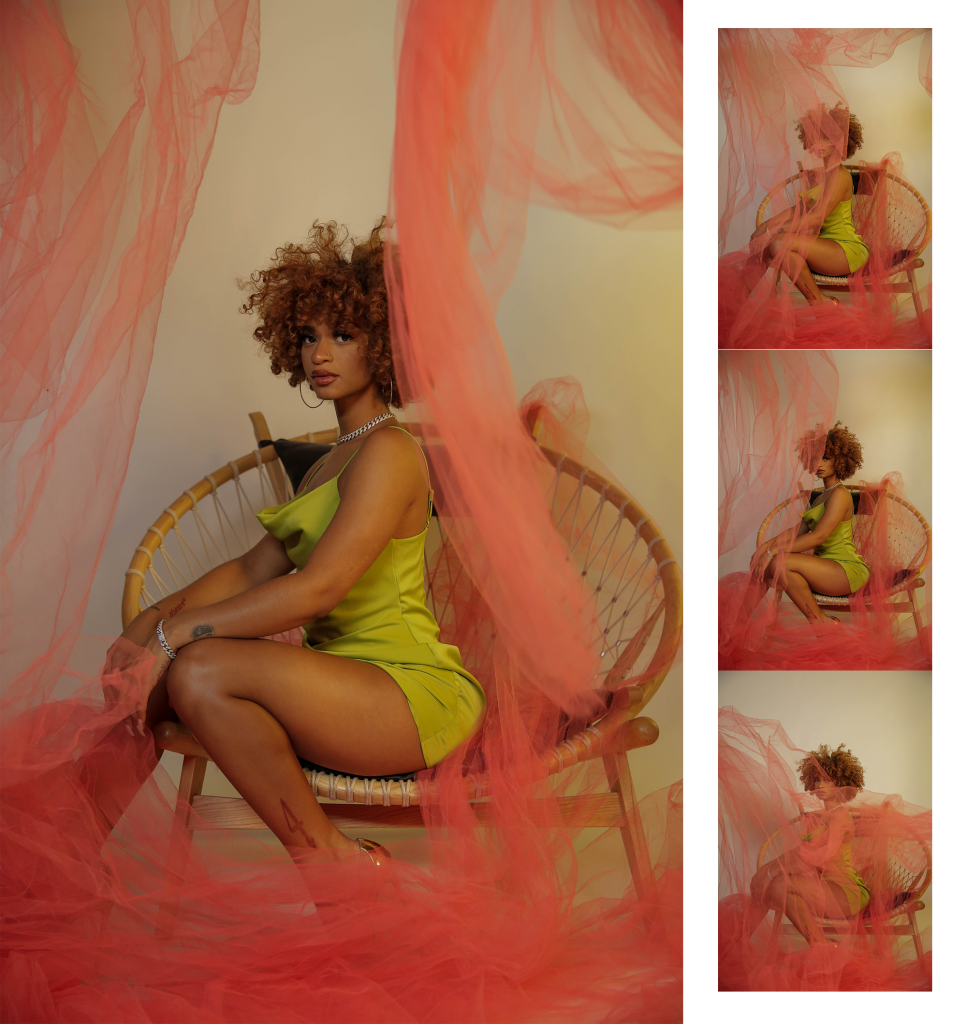
As a teen, Melii shuffled between Harlem’s public high schools, eventually landing at Edward A. Reynolds West Side High School, the creative birthplace of other stars like A$AP Rocky and the late Big L. Eventually, Melii connected with a friend who asked her to lay down a track in a proper studio. It was located in a friend’s apartment in the projects. In a closet in that apartment, she recorded her first song – a cover of PARTYNEXTDOOR’s “Persian Rugs.”
At West Side, she met her mentor and music teacher, Albert Bouchard. He’s a founding member of the ’70s rock band Blue Oyster Cult, who was infamously immortalized by Will Ferrell’s “More Cowbell” gag on SNL. In 2015, a local Fox News station filmed a segment at her school. A vulnerable teenage Melii appears on screen, singing along to Bouchard’s gentle guitar strums and telling the cameras, “When I’m here, I get to speak to him about personal things and how I’m feeling. I’m a person that can express themselves better through music.”
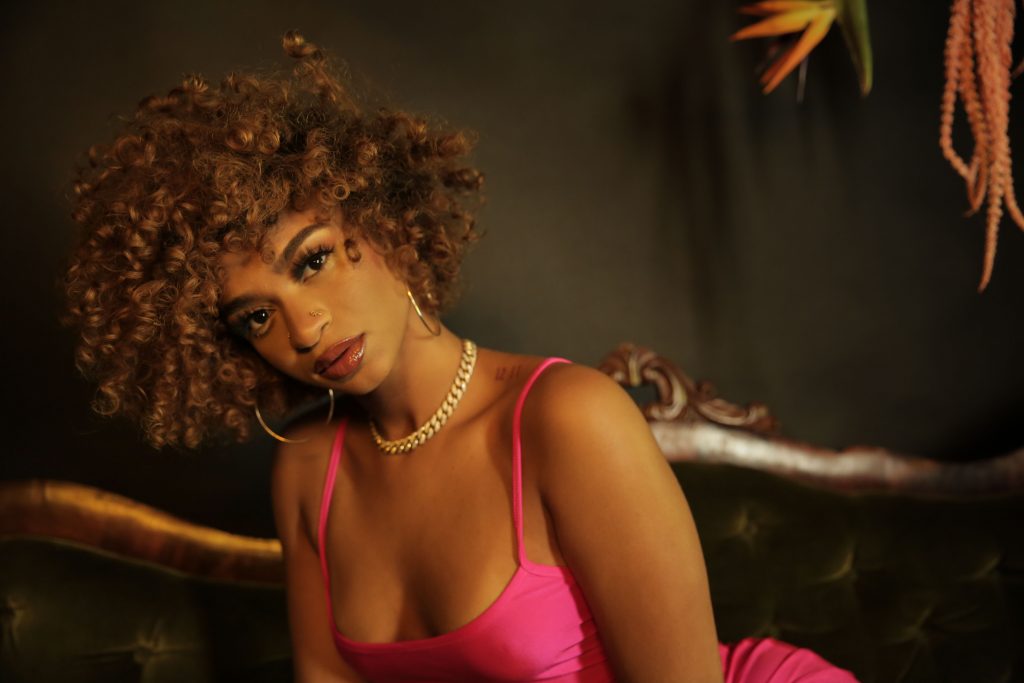
It was evident that traditional schooling wasn’t meant for Melii. When we speak, she’s palpably skeptical of the sanitized versions of U.S. history she was taught as a kid. “Having the Internet and other resources where you learn real history, you start looking at school differently,” she says. Her teachers recognized that she’d flourish following a more creative path. “One of the teachers told me, ‘Why are you here? Why didn’t you just go do a music school?’ I was fighting myself. My teachers always knew how I thought, ‘Man I don’t wanna do this; I just want my voice to be heard.’”
Melii knew the only way to realize that goal was to leave school behind to pursue music full time. In 2015, she dropped out to focus on her career, but not before sparring with her parents. “My dad never lived with me, but he would always have his outside opinions, which contributed to how my mom [saw things],” she says. “My mom would always be worried, like, ‘Look, you’re already the trouble child, the rebel child. So at least get your diploma.’” Eventually, Melii came to understand her mom’s concerns. “It took a big step in me, to be like, ‘I get it. You don’t want [people] to look at you a certain way, but I can’t hinder myself and suffer just because of other people.’”
The success was far from immediate. When she dropped out, Melii found herself smack dab in the middle of Uptown’s budding Latin trap scene, surrounded by other nascent stars like Tali and Lito Kirino (who she even shouts out on the Spanish remix of “Icey”). Like them, she switched breathlessly between flows and languages, often writing in Spanglish and adopting the Spanish remix model, which, in addition to spawning the Latin trap movement, saw rappers like Fuego and Messiah re-imagining Top 40 hip-hop en español.
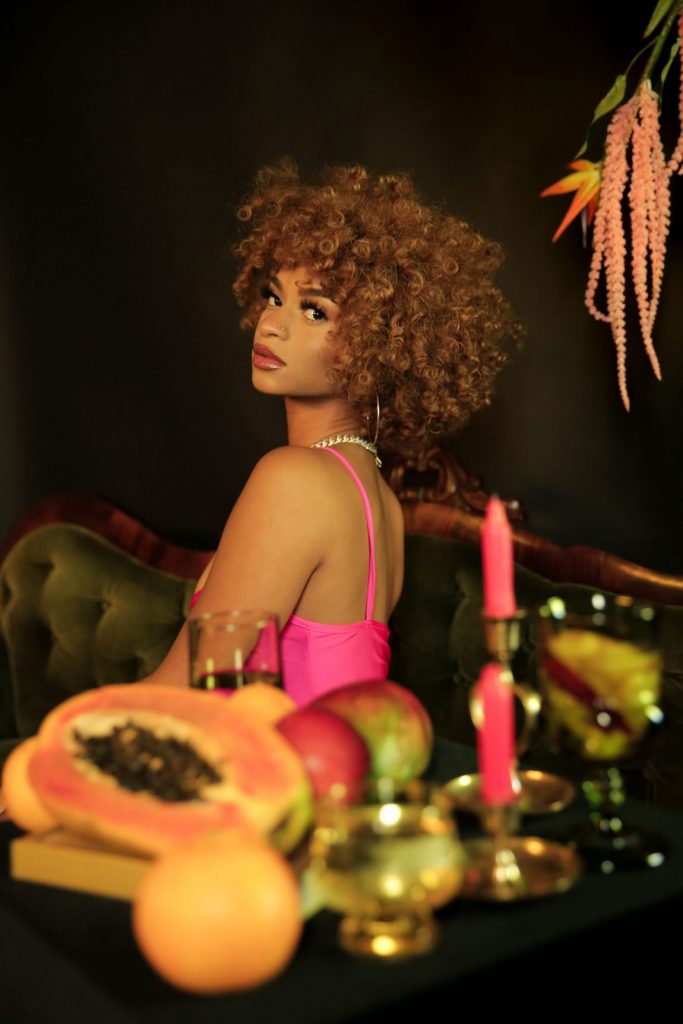
A firm in Washington, D.C. soon signed Melii, but she found that the management was “manipulative,” so she severed her relationship with them. In the fall of 2017, her remix of “Bodak Yellow” started turning heads online. By the end of the year, she had a deal with Interscope. She’d spend the next year dropping singles for fans; among them, “Sh*t Talk,” “Como Si Na,” “La Envidia Mata,” and the aforementioned “Icey,” all showcasing Melii’s knack for bratty, bilingual bars. More than once have I used her tough-talk one-liners – “Si quiere pleito yo te lo doy” and “Si te quilla ven ponte en la fila” – as Instagram captions.
In March, Melii unveiled her debut project, PhAses. The 14-track collection dove deeper into Melii’s affinity for R&B, featuring her lovelorn musings on the babosos who break hearts, all over speaker-knocking 808s and pristine Afrobeats and reggae-inspired production. It sounds just as good blasting at rude volumes down the block as it does on a solo night spent at home drinking a glass of Merlot. As Melii tells it, the goal was to make music that could uplift other women. “Like, put on this song. Go outside. Put on your heels. Feel like you’re that bitch, you feel me? Feel entitled to do whatever you want.”
This versatility might have surprised fans who mostly knew Melii for her confident, self-assured raps. But the 22-year-old says she’s always seen herself as a singer and an emcee – she’s even granted the personality behind those truculent rhymes an alter ego. “When I’m in the studio or I have a mic in front of me, I just turn into this sassy girl, which is why you hear it mostly in my songs. I turn into Victoria,” she laughs. “I’m Victoria and I’m all up in people’s faces. But then I do go through my times where I’m kinda insecure.”
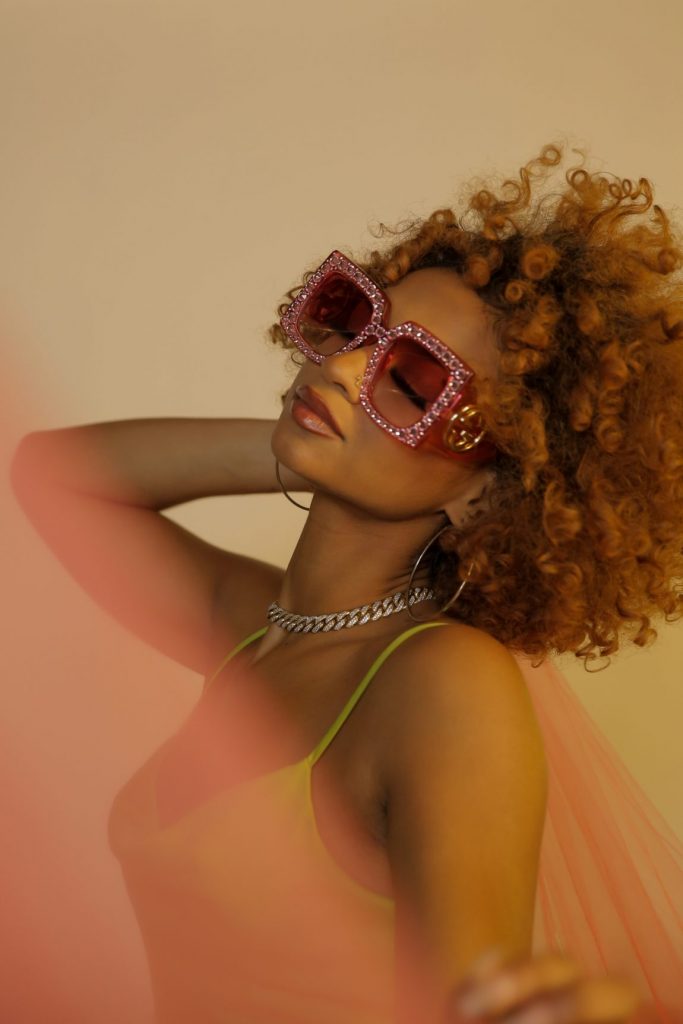
That vulnerability inspired her to confront her struggles with mental health in her music. “Being in this industry, I have my toes in the water right now, just reading over these comments, the way people just nip at everybody that’s coming up is crazy. They forget that we are humans too,” she says, downcast. On PhAses’ deeply personal “Pretty Girls,” Melii addresses these battles, recounting an incident where she stumbled upon a fellow student in her elementary school’s bathroom with a plastic bag on her head. “I remember P.S. 97/I was still a kid,” she sings, “Follow shorty in the bathroom/Bag over her head, sittin’ on the sink.” The incident resonated with Melii, who’d struggled with thoughts of suicide herself. “[‘Pretty Girls’] was based off of feeling like you’re good enough. You’re OK. The way you were made is perfect. The way God made you, that’s how you were meant to be known.”
It’s this incisive quality and penchant for positive affirmation that sets Melii apart from her peers. At a time when men are celebrated for their lyrical frugality in hip-hop, Melii shows she is just as capable of producing a bad bitch anthem as she is emo R&B. Melii is showing what it’s like to live on the hyphen, all while putting a spotlight on the history, present, and future of New York Dominicans in hip-hop.




